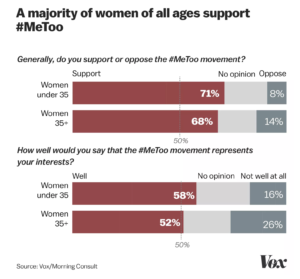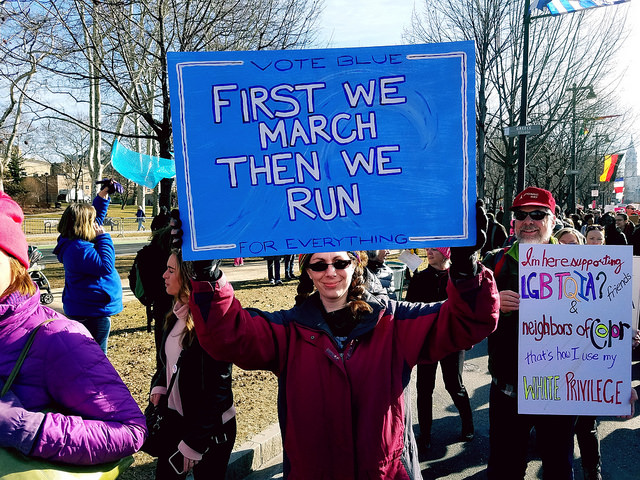 Up until this weekend, I hadn’t realized that #MeToo was up for debate. I assumed all the women in my life, young and old, would be behind a movement that’s been a long time coming.
Up until this weekend, I hadn’t realized that #MeToo was up for debate. I assumed all the women in my life, young and old, would be behind a movement that’s been a long time coming.
But I had an “ah-ha” moment, talking to an older family member, who expressed she was tired of the whole #MeToo movement. It stopped me in my tracks. This person is in her 70’s and told me that she feels that in many ways #MeToo is eliminating the ability for men and women to joke with each other in the workplace.
There are anecdotal reports of executives changing their travel plans as a result of concerns with the #MeToo movement. Men are option not to fly with their female coworkers out of concern of an allegation of inappropriate behavior.
She told me of a carpool she was in while still working where she was the only woman in a carload of men. She said they’d joke, and laugh and sometimes the conversation would teeter on “dirty” humor.
I remember these friends of hers and they were all fun and from what I could tell, well-intentioned men. This family member enjoyed the camaraderie, and I can appreciate that, understanding it in context.
But then I brought up a few very public examples of why the fight is so important. We spoke of Harvey Weinstein and Bill Cosby and she acknowledged that of course, this behavior was inappropriate and shouldn’t be tolerated.
There are black and white instances of sexual harassment and assault, but thousands of shades of gray. I realized this weekend that the shades of gray are muddying the waters for some of us, trying to navigate this new normal, and also place past behavior into context.
 A March 2018 Vox/Morning Consult Survey found that women of all ages support the #MeToo movement – with 71-percent of those under 35 feeling supportive and 68-percent of their 35 and over counterparts. I do wonder what the results would have been if they’d polled women 55 or 65 and up.
A March 2018 Vox/Morning Consult Survey found that women of all ages support the #MeToo movement – with 71-percent of those under 35 feeling supportive and 68-percent of their 35 and over counterparts. I do wonder what the results would have been if they’d polled women 55 or 65 and up.
My conclusion after absorbing the conversation over the weekend is that we need to bring everyone along in the discussion and help women of all generations understand why #MeToo is important. We need to emphasize we’re all on the same team – with a common goal of creating an equal work environment. At the same time, I do believe that we must demonstrate an openness to our male counterparts who simply want peer to peer interaction. Professionally it doesn’t serve us for our male peers to feel afraid to invite us to lunch.
In this Chicago Tribune article, Kim Elsesser, a psychologist at the University of California at Los Angeles and author of “Sex and the Office” is quoted as saying. “Now it’s gotten worse. We need to educate everyone in the workplace not only about what not to do, but that going out to lunch is important — if you segregate by gender, that’s discrimination.”

There are no comments
Add yours